
With the recent passing of moon bear Hebe, Animals Asia vet Emily Drayton wrote about the life lessons she learned through time spent with her.
Emily first met Hebe on the day her companion and best friend died.
As Emily watched Hebe sit beside the den and comfort her friend through her last stages, she realized it was the first of many things she would be taught during their time together:
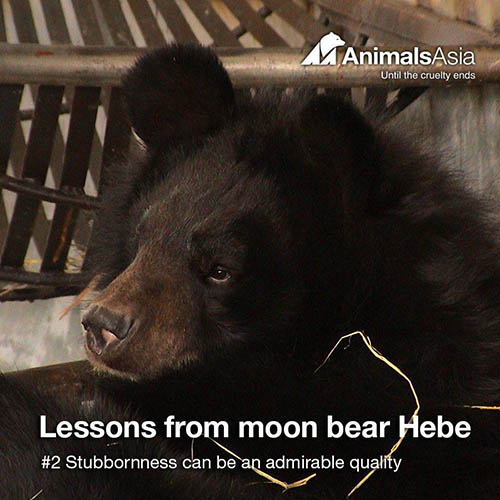
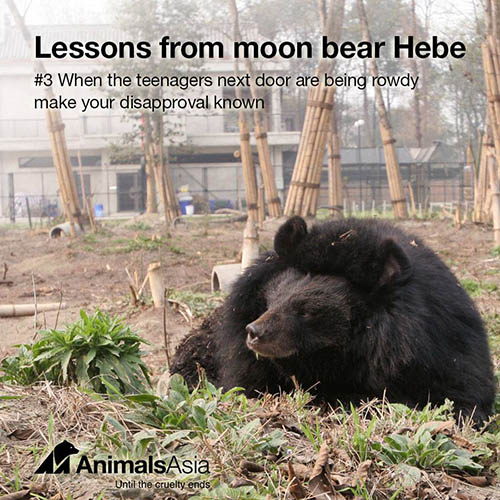
Hebe resided in one of Animals Asia’s sanctuaries for rescued bears.
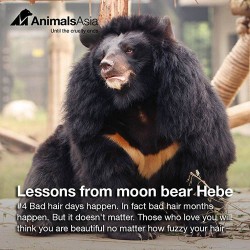
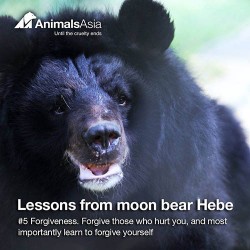
Sadly, her life was not always lived like this.
Hebe had been rescued from a life of bear bile-farming and despite suffering incredibly at the hands of her captors, went on to show love, trust and respect to those assisting her with recovery and rehabilitation.
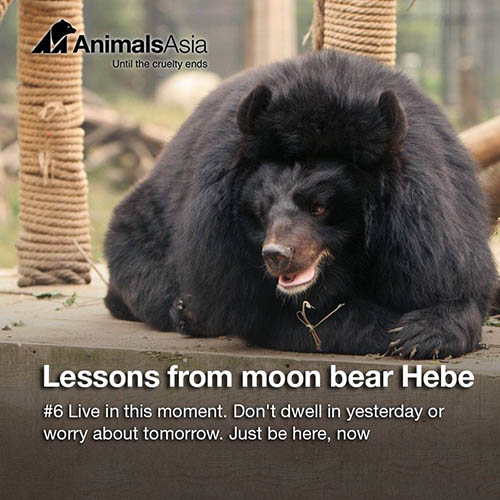
Alongside other bears Hebe spent her days, swimming in pools, exploring the bamboo forest and playing on climbing frames instead of the life of factory farming that she had been forced to live previously.
I have followed the plight of these bears and have helped to raise awareness about the bear bile-farming industry for some time, so when I came across these beautiful life lessons, I thought it was a great time to share more information about the background to the story.
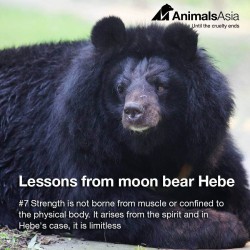

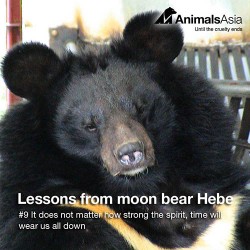
In countries such as China, it is illegal to poach these bears for their body parts, it does not stop the hunting trade. Enforcement against hunts can be difficult and the parts can reach high values on the black market, which encourages the poaching to continue.
The saddest part to the moon bear’s story is that the capture of them often results in them being imprisoned in cramped cages for their whole lives for the sole purpose of extracting the bile from their abdomen, something known as bile-farming.
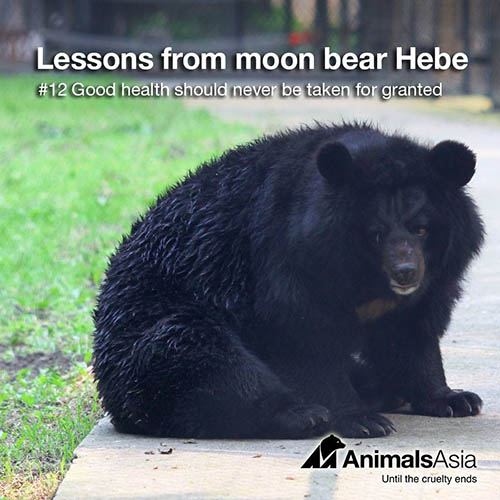
The bears are kept in cages, known as crush-cages as the bears have barely any space to move in them. They can live like this for up to 30 years. A catheter is permanently attached to their bellies and extracts the bile, which causes excruciating pain to the bear.
The bile is used as an ingredient in Chinese medicine and is believed to reduce fevers, shrink gallstones and reduce the effect of heavy drinking to name a few.
Scientists have yet to prove that there are any health benefits related to bear-bile.
The bears that have been kept in these environments suffer from psychological problems, severe mental stress and have often never stepped foot on natural ground. They often have had their teeth and claws painfully extracted to avoid biting and clawing at the metal cages.
Bear bile-farming is only legal in countries such as China and South Korea causing British charity Animals Asia and other organizations to constantly campaign to raise awareness. They are currently working with governments and the public to put an end to this inhumane practice.
Research carried out by Animals Asia, suggest there are at least 97 of these farms holding up to 10,000 bears.
Animals Asia has set up bear sanctuaries in both China and Vietnam and provide semi-natural enclosures where the bears can be cared for and rehabilitated to recover in safety.
So far, they have taken care of 400 bears.
Please visit the website for more information and also, how you can help to raise awareness and support their cause.
Animals are reliable, many full of love, true in their affections, predictable in their actions, grateful and loyal. Difficult standards for people to live up to. ~ Alfred A. Montapert
Love elephant and want to go steady?
Sign up for our (curated) daily and weekly newsletters!
Apprentice Editor: Kim Haas / Editor: Renee Picard
Photos: Courtesy of Animals Asia

 Share on bsky
Share on bsky





Read 1 comment and reply